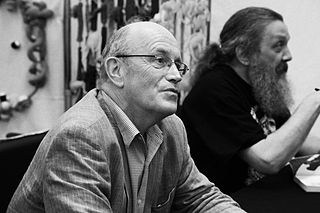A Quote by Dani Shapiro
I never troll for material. It simply presents itself, and is always unmistakable. This is why I want to roll my eyes when people interrupt themselves in the middle of some story they're telling me to say, "You know you can't write about this."
Related Quotes
When you're about three years old, you start to learn how to be manipulative. I know this from my own experience - I created this expression between sadness and dissatisfaction to get people to make me feel better, to get me presents. I created this face based on movies without even understanding it. I felt attracted to faces and body language. I remember I was always fascinated with why some people are considered beautiful and some are not. Everybody's got two eyes and one nose, but it's the small details. It is why we fall in love or why we want to kill somebody we haven't even spoken to.
Reshaping life! People who can say that have never understood a thing about life—they have never felt its breath, its heartbeat—however much they have seen or done. They look on it as a lump of raw material that needs to be processed by them, to be ennobled by their touch. But life is never a material, a substance to be molded. If you want to know, life is the principle of self-renewal, it is constantly renewing and remaking and changing and transfiguring itself, it is infinitely beyond your or my obtuse theories about it.
I always think about the books I'm doing in pretty much the same way. I'm simply trying to write that particular novel as well as that particular novel can be written. I want to listen to what it is telling me, trying to figure out what it wants to do as much as what I want to do with it. There's a negotiation that's constant and ongoing between me and the material I'm working with, because I'm trying to listen to it.
Characters simply come and find me. They sit down, I offer them a coffee. They tell me their story and then they almost always leave. When a character, after drinking some coffee and briefly telling her story, wants dinner and then a place to sleep and then breakfast and so on, for me the time has come to write the novel.
You didn't plan to write a story; it just happened. Well, it could be argued that the next thing you should do is find a hole to dig. Right? So you start digging a hole and then somebody brings a body along and puts it in. That's what a story must feel like to me. It's not that you say, "I want to write a story about a gravedigger." But you're walking along and "I don't know what I'm doing here in this story,' and - boop! a shovel. "Oh, interesting. Ok, what does one do with a shovel? Digs a hole. Why? I don't know yet. Dig the hole! Oh, look a body."
I think that people have to have a story. When you tell a story, most people are not good storytellers because they think it's about them. You have to make your story, whatever story it is you're telling, their story. So you have to get good at telling a story so they can identify themselves in your story.
This is our story to tell. You’d think for all the reading I do, I would have thought about this before, but I haven’t. I’ve never once thought about the interpretative, the story telling aspect of life, of my life. I always felt like I was in a story, yes, but not like I was the author of it, or like I had any say in its telling whatsoever.
So you want another story?" Uhh... no. We would like to know what really happened." Doesn't the telling of something always become a story?" Uhh... perhaps in English. In Japanese a story would have an element of invention in it. We don't want any invention. We want the 'straight facts,' as you say in English." Isn't telling about something--using words, English or Japanese--already something of an invention? Isn't just looking upon this world already something of an invention?
The story, I like to say and remember, is always smarter than you—there will be patterns of theme, image, and idea that are much savvier and more complex than what you could come up with on your own. Find them with your marking pens as they emerge in your drafts. Become a student of your work in progress. Look for what your material is telling you about your material. Every aspect of a story has its own story.


































